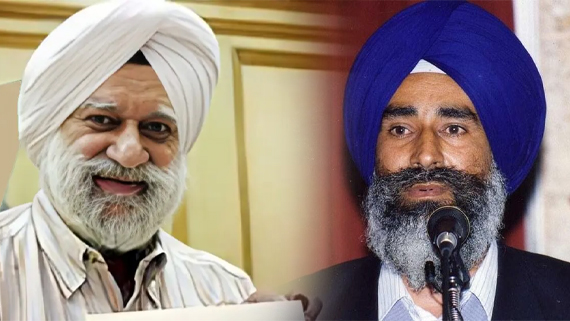New Delhi, November 27, 2024 – Justice (retired) Kuldip Singh, the former judge of the Indian Supreme Court termed the extrajudicial killings and secret cremations of dead bodies of Sikhs during the mid-1980s-1990s in Punjab as “worse than genocide”, passed away on Tuesday, November 26, 2024, at the age of 92.
Justice Singh’s comment about the secret cremations was made during a hearing in the Supreme Court in a case concerning the enforced disappearances of thousands of Sikhs, mainly youth, in Punjab. The victims, many of whom were reportedly killed in fake encounters by Indian security forces, were cremated as “unclaimed bodies” with little to no acknowledgment of their deaths. His powerful remark highlighted the severity of the human rights violations occurring at the time, drawing attention to the extrajudicial killings and the mass cover-up of these possible “crimes against humanity”.
Justice Kuldip Singh, the judge who termed Punjab’s Human Rights abuses as “worse than genocide” (File Photo)
One of the notable moments in Justice Kuldip Singh’s career was his intervention in the case of Sikh human rights activist Jaswant Singh Khalra, who was abducted and disappeared in 1995 after uncovering evidence of the widespread abuses carried out by Indian forces in Punjab. Justice Kuldip Singh took notice of Jaswant Singh Khalra’s disappearance, ordering a CBI inquiry into the matter. The investigation later led to charges being filed against Punjab police officers for the extrajudicial killing of Jaswant Singh Khalra, with the accused being convicted by a CBI trial court. Jaswant Singh Khalra’s efforts to expose the mass disappearances and killings have made him a symbol of the struggle for justice in Punjab.
Jaswant Singh Khalra [File Photo]
Born in 1932 in Jhelum (now in Pakistan), Justice Kuldip Singh had an illustrious legal career. He graduated in law from Punjab University and went on to become a Barrister-at-law in 1959. His legal journey saw him rise to the position of Advocate General of Punjab in 1987, and the following year, he was appointed as Additional Solicitor General of India. In 1988, S. Kuldip Singh was appointed as a judge of the Supreme Court of India, where he made significant contributions to environmental law, earning him the title of India’s first “green judge” for his focus on environmental issues. He remained on the bench until his retirement in 1996.
Justice Kuldip Singh’s contribution to environmental jurisprudence is well-regarded, and his work in cases related to the protection of the environment remains a part of his enduring legacy. His deep concern for human rights, particularly regarding the Punjab insurgency and its aftermath, further solidified his standing as a champion of justice.
He is survived by two sons, Paramjit Singh Patwalia and Deepinder Singh Patwalia, both esteemed senior advocates, as well as two daughters, Simran and Chandana.
Justice Kuldip Singh’s death marks the end of a distinguished judicial career that has left an indelible mark on both the legal and human rights landscapes of India.

